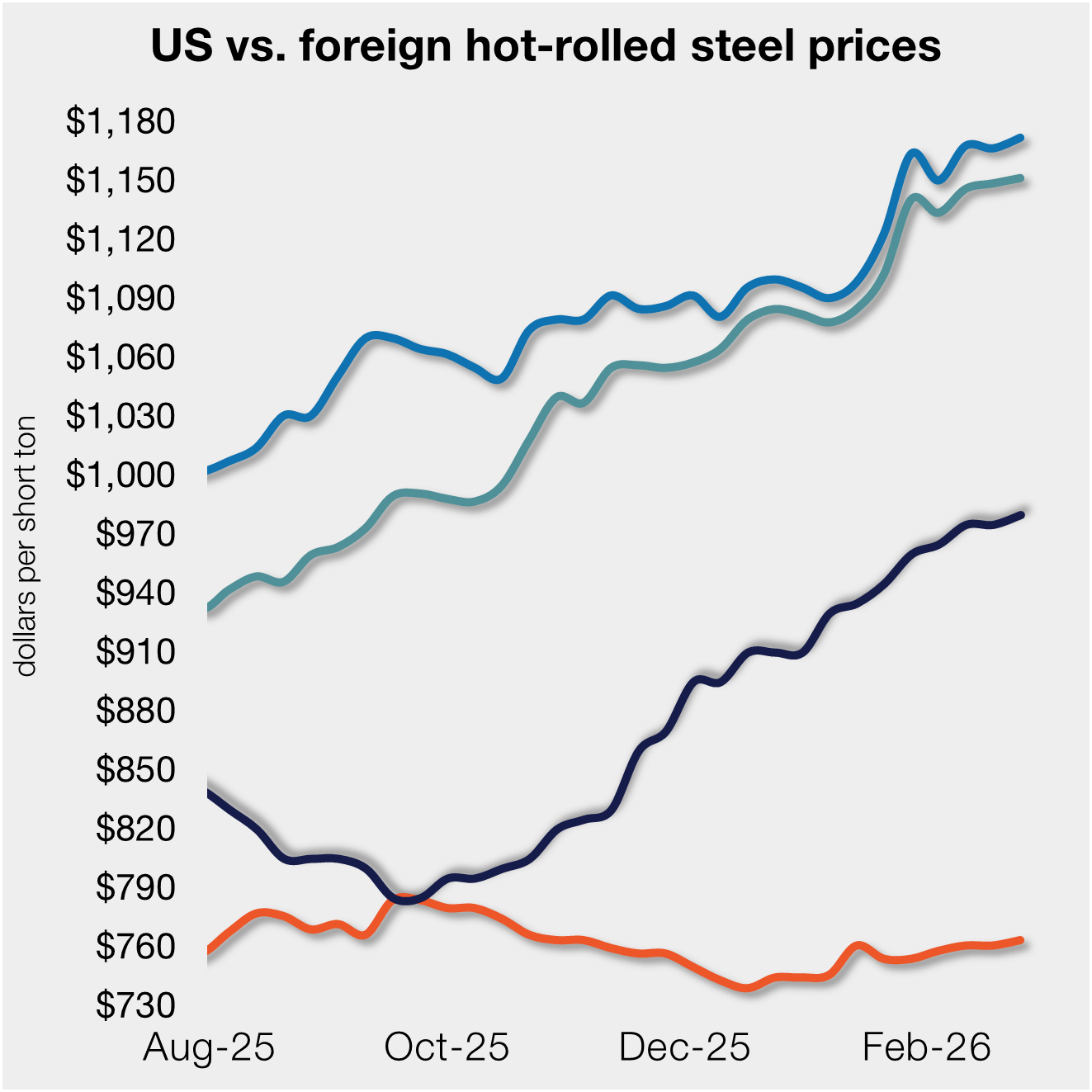Prices

July 9, 2017
Scrap Prices Sideways to Slightly Higher for July
Written by John Packard
As expected, ferrous scrap prices traded sideways (July delivery to be the same as June) in most markets. Of course, having just said that, we do need to point out that the steel mills sourcing scrap from the East Coast had to pay $10 per gross ton more in order to keep scrap from moving to the export markets. Our sources also advised that prime scrap continues to be tight in the Great Lakes, where prices went up by $10 per gross ton. Even so, Pete Myers of Metalico told SMU, “Note, even with these increases price levels in the Great Lakes and Chicago still remain well below regions to the east and south.”
Myers went on to say, “With mills returning to normal demand in August and strong export sales through 8/31, participants are bullish for next month.”
![]() Mike Marley, scrap guru for World Steel Dynamics, told us, “It looks like many of the mills have or will settle today. In interior regions, prices are up $10 per ton on bundles and busheling; sideways on shredded and cut grades.” He added, “All except Chicago at this point, where the early readings are that shredded is off by $10 per ton and cuts and prime scrap prices are sideways. That surprised me. Some dealers there were talking tougher earlier. The EAF flat-rolled mills might have taken some of their strength by bringing in more scrap from offshore.”
Mike Marley, scrap guru for World Steel Dynamics, told us, “It looks like many of the mills have or will settle today. In interior regions, prices are up $10 per ton on bundles and busheling; sideways on shredded and cut grades.” He added, “All except Chicago at this point, where the early readings are that shredded is off by $10 per ton and cuts and prime scrap prices are sideways. That surprised me. Some dealers there were talking tougher earlier. The EAF flat-rolled mills might have taken some of their strength by bringing in more scrap from offshore.”
Marley also spoke to SMU about pig iron prices. “Pig iron prices have dropped, as well. They are down to about $345 per tonne [MT] delivered to the Gulf Coast ports. I figure about $20 per tonne for offloading onto barges and transport up the rivers to the flat-rolled mills in the South. That makes pig competitive with busheling. Shipping point price from Detroit for the mills in the South was about $360 for busheling and bundles in June. Railcars, if they could get them, probably cost at least $30 per ton to roll to the South.”
One of our East Coast sources advised SMU, “July ferrous markets are sideways for the most part, except in pockets of the Midwest where busheling is a little tighter (up $10 from June) and the Northeast where obsolete cut grades and shredder are pressured $10/GT higher by the recent increase in the export market (latest deals are around $297/MT CIF). There was some back and forth following the holiday break with mills wanting to pay the same prices they paid in June and dealers wanting to see if mills would pay more. But with it being the middle of the year and the market seeming relatively balanced, the dealers for the most part ended up accepting sideways pricing. Supply is at acceptable levels right now, 232 is still theoretical in so far as it affects scrap prices, and the direction of the export market from here is somewhat uncertain. Heading into August, I don’t expect much change, and if there is a significant 232 action, it probably does not affect scrap until it impacts the domestic operating rate.”







